Director
Scriptwriters
Producer
DOP
Production Designer
Editors
Sound design
Composer
CAST

An elderly couple – Jonas and Eleonore invite a real estate agent to sell their flat. It’s a typical Vilnius “komunalka” – a small soviet flat created in the 50’s by dividing a big apartment into several small ones. Eleonore hardly speaks, while Jonas keeps reminiscing on beautiful memories in the the flat. He reveals that they met here. Eleonore clings to that memory, and we delve into it too.
Back in 1947, the room was much bigger – before the dividing wall was built. We see a young Eleonore looking around the apartment, seemingly doing the value assessment. A young Polish man enters the room. In the present time Jonas nostalgically remembers young Eleanore and love at first sight. It feels as if we were watching a flashback of their love story.
Suddenly two NKVD officers enter the apartment to arrest the young Pole. In the scuffle, the Pole pushes her, trying to escape, but is quickly caught by the officers. Eleanore’s eyes meet the Polish man’s gaze, full of fear and pain. One of the NKVD officers reaches out his hand to help her stand up. Eleonore’s and Jonas’ eyes meet for the first time.
Back in the present, Eleonore remains fixated on the grotesque memory of their first encounter and on the choices she made back then.
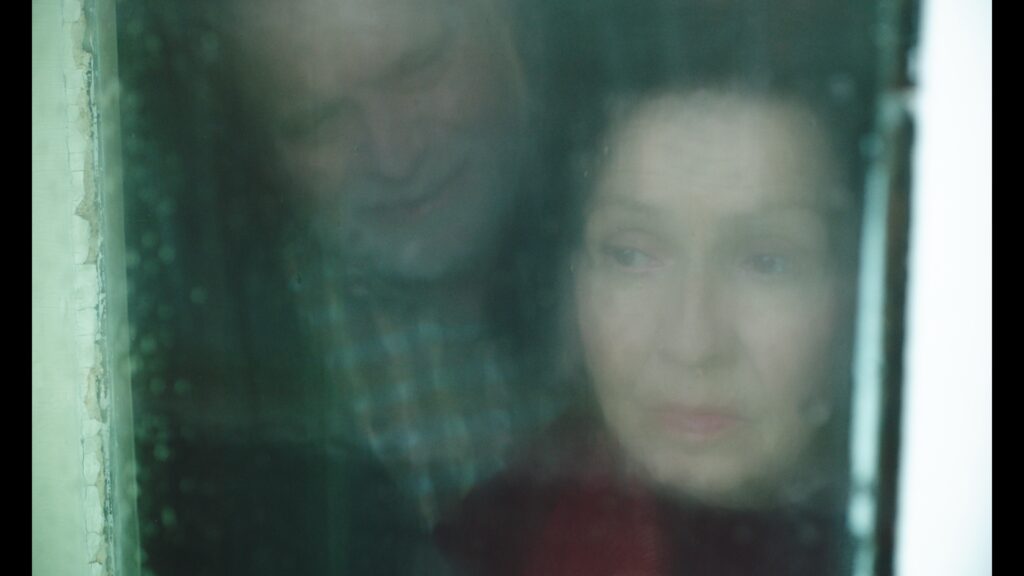
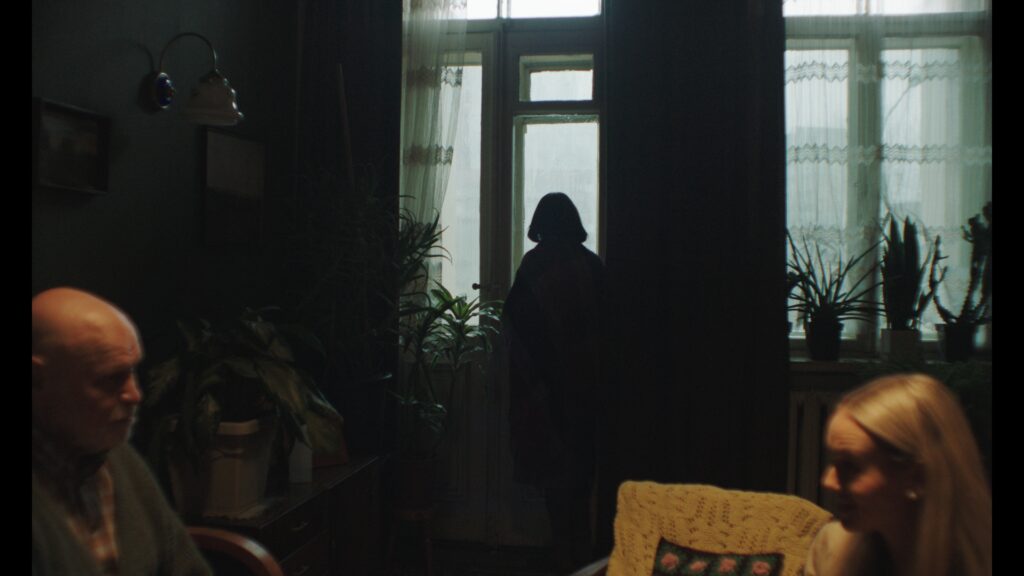
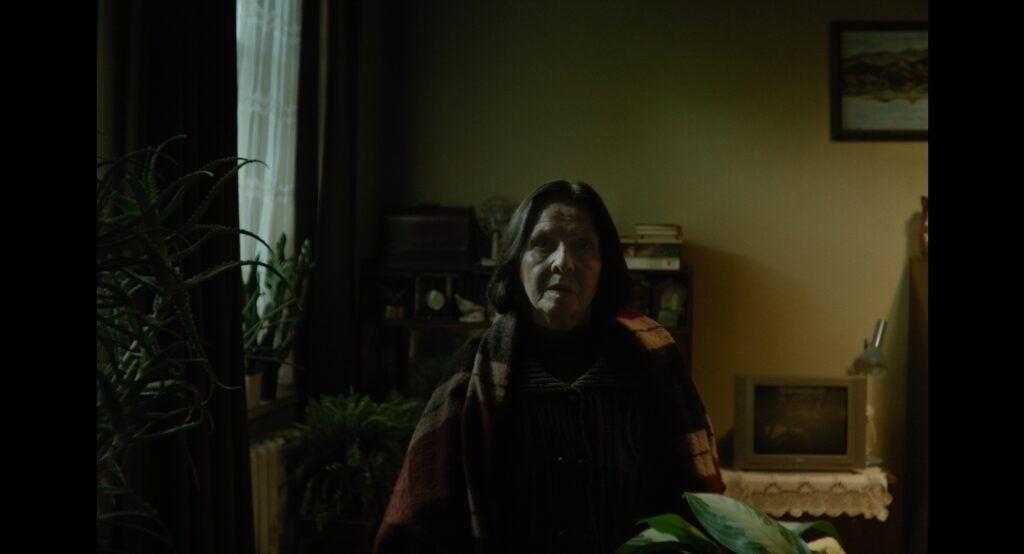
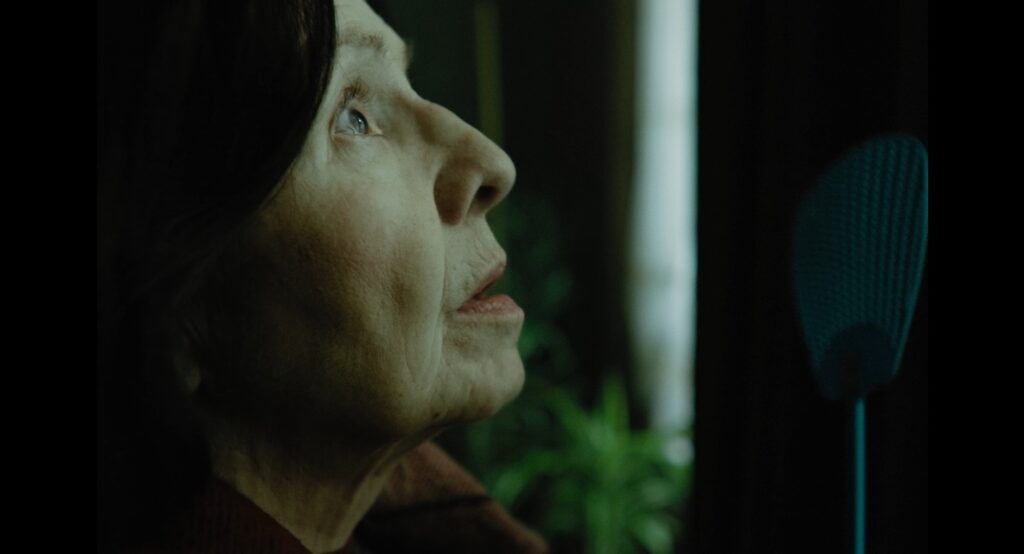
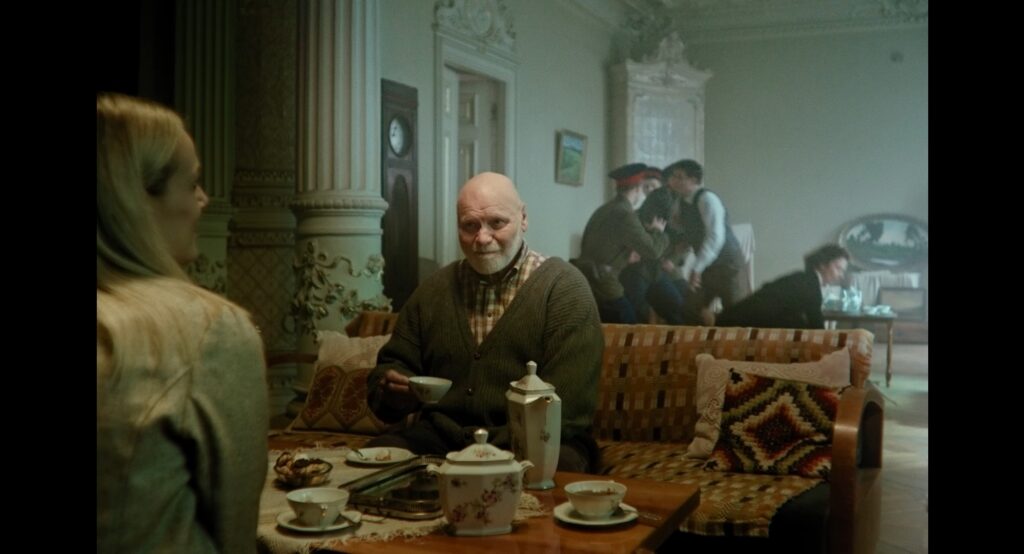
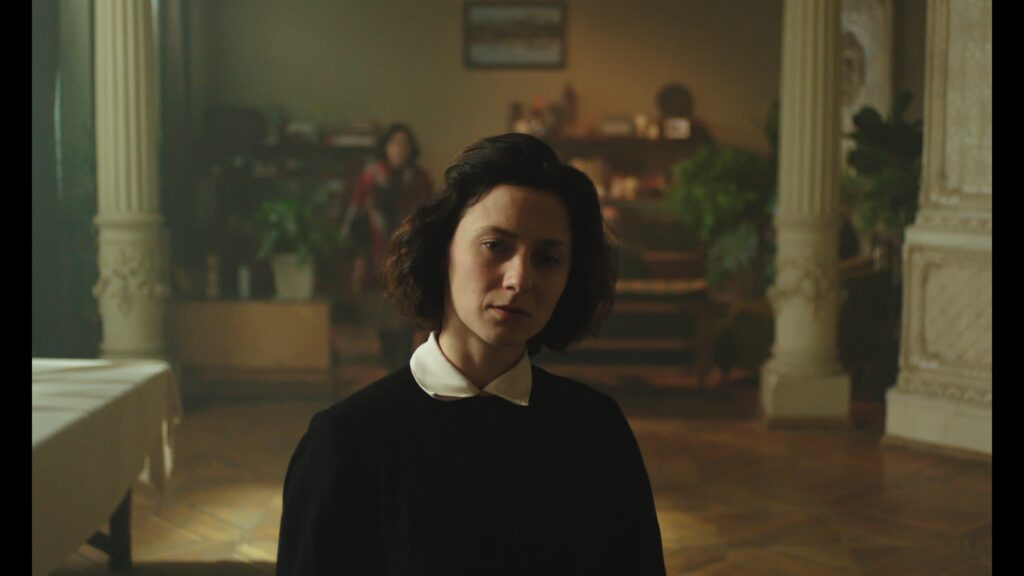
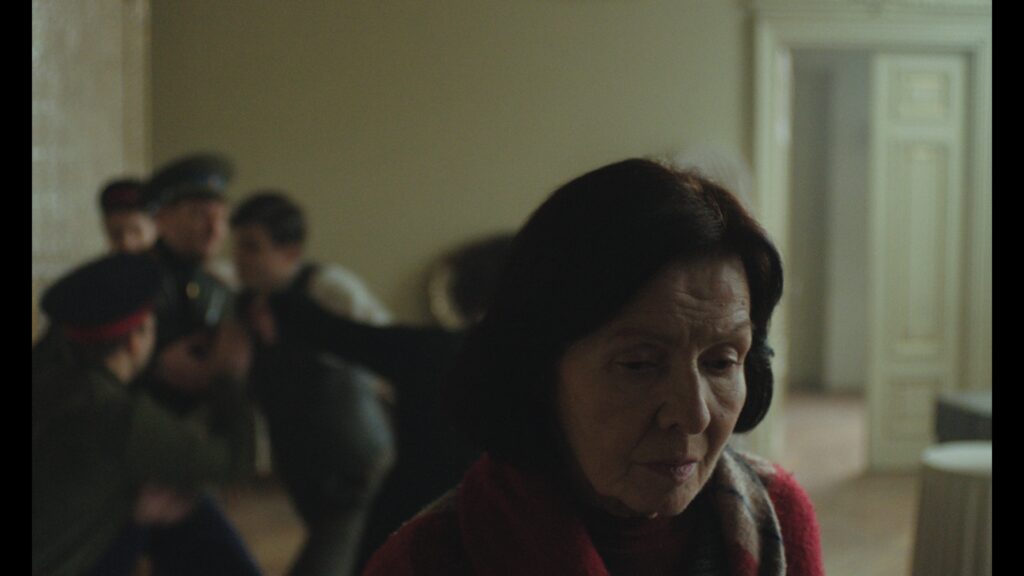

Director
Scriptwriters
Producer
DOP
Production Designer
Editors
Sound design
Composer
CAST
Duration:
Completion Date:
Production Budget:
Production country:
Language:
Shooting Format:
Aspect Ratio:
Film Color:
14 min
2024
60 580 €
Lithuania
Lithuanian
4K
5:3
Color

Kristijonas is an audiovisual artist and filmmaker, born in Vilnius, Lithuania in 1992. In his work, he combines music and sonic art with visual expression in the form of narrative and non-narrative films, music videos, audiovisual installations and projections for stage.
Music plays a major role in Kristijonas’ storytelling. This is especially notable through his collaborations with Lithuanian composer Dominykas Digimas. Their recent works ‘Why Does This Appear?’ and ‘Sunshine Cake’ explore the question of the subjectivity in memories, as well as experimenting with docu-fiction storytelling in the form of a silent film with music. Kristijonas recently returned to Lithuania after 10 years abroad, and is currently completing his first Lithuanian short film, ‘Reminiscence’.
The theme of interpreting the past resonates incredibly well in today’s context when versions of history go through manipulation due to geopolitical tensions. In “Reminiscence,” the endless verbal flow of nostalgic sentiments about personal life masks the fact of brutal elimination. From a warm scene in the present, we split into two contrasting versions of the past, emphasizing the subjectivity of memory. Jonas’ cozy and warm narration sets a nostalgic tone, which contrasts with Eleonore’s memory. At one point, we see a brutal fight scene and hear a romantic love story told by Jonas. The character, which seemed warm and radiant with love at the beginning, becomes repulsive and frightening as the viewer gradually gets to a fuller picture of the past.
We presented the first version of the script at the Baltic Pitching Forum in 2021 (where it won the Producers’ Jury Special Mention Award). Rewriting the script with Vykintas Labanauskas, we included a critical moment in the history of Vilnius: the Expulsion of Poles, emphasizing the themes of guilt and the silence about the past. Although many works of art refer to the post-war context of Lithuania, this topic is relatively undiscovered.

Established in 2016, Broom FIlms is a growing production company based in Lithuania. Producing and co-producing feature films as well as documentaries and animations, the company works with a wide range of emerging talents and is constantly seeking captivating stories to tell.
Justė Michailinaitė
juste@broomfilms.lt
